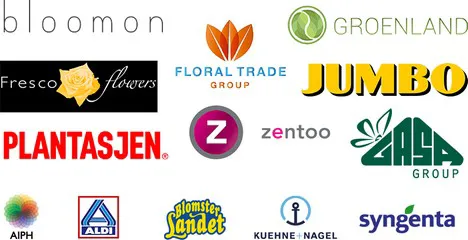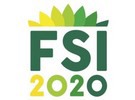In their last update FSI presented 5 new members (Aldi Netherlands, AIPH, Syngenta Global Flower Business, Kuehne + Nagel and Blomsterlandet), and now they can present another 8 new members who joined their active network.

- JUMBO is family business and leading supermarket chain in the Netherlands. As such, it is JUMBO's responsibility to treat Society and the Environment in a respectful manner. JUMBO strives for constant improvement in everything they do: more sustainable supply chains, less waste, limited plastics, recycled materials... As FSI member, Jumbo's ambition is to be as transparent as possible towards their customers, suppliers and other stakeholders, and to have 90% FSI Basket certified flowers & plants.
- GASA GROUP is one of the leading specialists in the marketing of high-quality ornamental, potted and outdoor plants. They have a high environmental awareness and social engagement, and want to initiate and implement efforts to reduce, reuse and recycle. This means reducing their carbon footprint, (energy, waste), protecting nature and focus on health and well-being throughout their operations. They work actively with the UN Sustainable Development Goals, a and to the greatest possible extend with certified partners. GASA GROUP is proudly certified within the FSI Basket of Standards (GLOBAL G.A.P. and MPS).
- Groenland brings together five trading companies (Bouquetnet, Celieplant, Bloominess, Greenpackers and Spira) with their own brands and a strong focus on sustainability towards the environment and people. In 2019 they have set the target to reduce the use of plastics by 50%. We hope to support them in their ambition, as they are committed to the FSI target of 90% sustainable flowers and plants.
- Floral Trade Group is a group of company traders based in Rijnsburg, working internationally with emphasis on Corporate Social Responsibility. Their 9 export companies cover the entire supply chain, from farm to consumer and deliver worldwide. They focus their sustainability efforts to being a “future-proof business”, improving the sector performance while respecting the environment, the people and society, now with the additional ambition to reach the 90% FSI target.
- Zentoo is a group of Chrysanthemum Growers working on better sustainable practices with their suppliers and customers. As already fully compliant with the FSI basket, they want to go further on topics like environmental footprint and supply-chain transparency.
- bloomon is an online flower delivery service of fresh, stylish and seasonal flowers. With a reduced supply chain of 80%, the innovative business model allows minimal waste and maximum freshness from growers to homes. As newcomer to the industry, bloomon sees itself having an important role in fostering innovation and sustainable practices.
- Fresco Flowers is a flower packing company located on the flower auction, Royal FloraHolland Aalsmeer. As one of the market leaders in the field of flower packing companies, they are dedicated to provide as many customers as possible in a regular and reliable way with fresh and top quality roses. They have reduced cardboard use by 90% at the beginning of 2019, and now they are looking at alternative solutions for plastic consumption.
- Plantasjen has more than 140 stores in the Nordic countries (Norway, Sweden and Finland) and is one of the leading garden stores in plants and plant products. As such, they are committed to put focus on delivering sustainable products and facilitating conscious decisions when purchasing in their stores: more transparency in their supply-chain, greater visibility of certified products, increased sustainable volumes, and lower environmental footprint are among their sustainability priorities.

 FSI 2020
FSI 2020